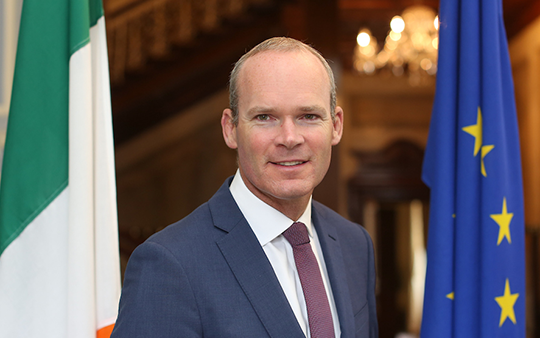6 November 2019 – Yesterday, Seán Crowe T.D. asked Irish Foreign Minister Simon Coveney if Ireland will take a leadership role against the human rights violations in Bahrain in the United Nations Human Rights Council, particularly since Minister Coveney has previously noted human rights in Bahrain is a priority for Ireland. Mr. Crowe also inquired as to whether the Foreign Minister would work to ensure a joint statement on the human rights situation in Bahrain is tabled at the next meeting of the council in March 2020. This question was a result of ADHRB’s international advocacy efforts.
Today, Foreign Minister Coveney replied:
“The human rights situation in Bahrain remains a matter of concern. Although Bahrain has repeatedly stated its commitment to improving its human rights record and safeguarding human rights as enshrined in the Bahraini Constitution, there are ongoing instances of violations of fundamental freedoms there, including violations of freedom of opinion and expression, as well as the targeting of human rights defenders. I was alarmed to learn of the executions of three people in July, including two human rights activists. I am also aware of reports of inhumane detention conditions as well as allegations that political prisoners in Bahrain have been tortured. Ireland attaches a high priority to safeguarding human rights defenders, and continually advocates for freedom for civil society actors to operate in a safe and enabling environment, without repression.
Respect for human rights is an integral part of Ireland’s foreign policy and we consistently seek to raise our concerns on human rights issues through the most appropriate and effective channels. Our active participation at the UN Human Rights Council is particularly important in that regard. Ireland regularly raises the case of human rights in Bahrain at that forum, in the form of national statements and its support to EU Statements. For example, in September 2018, Ireland expressed concerns about the ongoing restrictions on civil society space and the treatment of human rights defenders, and called on Bahrain to respect freedom of opinion and expression. In February 2019, Ireland reiterated concern at the ongoing detention of human rights defenders. In our Item 4 statement at the Human Rights Council in July 2019, Ireland called on Bahrain to ensure respect for freedom of opinion and expression, and the right to a fair trial. Ireland also took the opportunity at the most recent Council in September 2019 to reiterate its opposition to the use of the death penalty in all circumstances.
Since 2012, Ireland has signed five Human Rights Council joint statements on the human rights situation in Bahrain, which expressed concern on a number of fronts including the mistreatment of detainees, repression of demonstrations, and the arbitrary deprivation of nationality without due process. When planning for the March 2020 Human Rights Council session, we will consider carefully which priorities to set, with a view to focusing the weight of Ireland’s efforts, and the Council’s attention, on the most grave and troubling situations globally.
Our principled stance on human rights also feeds into our bilateral dialogue and we raise our human rights concerns directly with the Bahraini authorities at every opportunity. When I met the Bahraini Foreign Minister at the UN General Assembly in New York in September, I made a point of raising the human rights situation directly with him, expressing the hope that we can have an open and honest discussion on these issues. In addition, officials from my Department meet regularly with advocacy groups and Bahraini human rights defenders to discuss the situation in Bahrain.
Ireland will continue to monitor developments in Bahrain, and to call on the Bahraini Government to deliver on its stated commitment to make progress in relation to human rights. We shall do so both directly with Bahraini officials, as well as at EU and international level, including at the Human Rights Council, whenever opportunities arise.”





